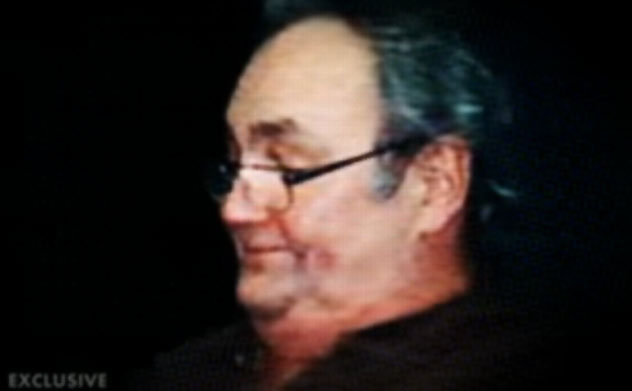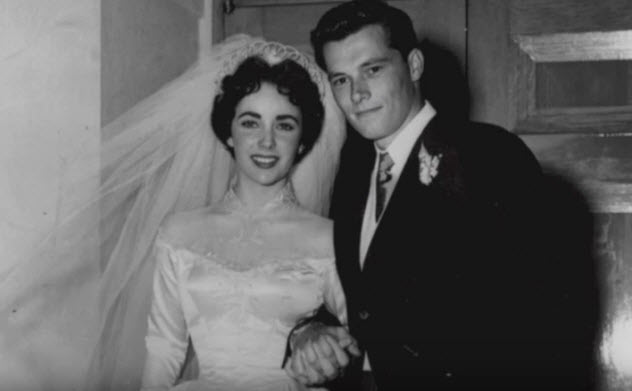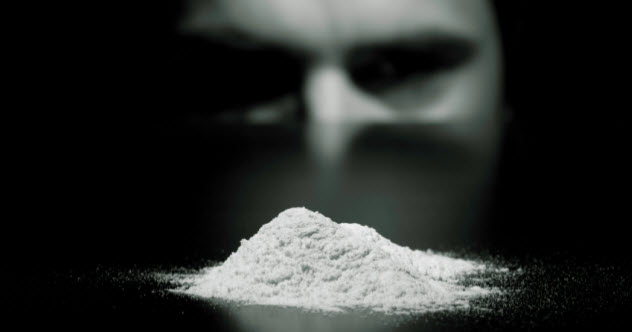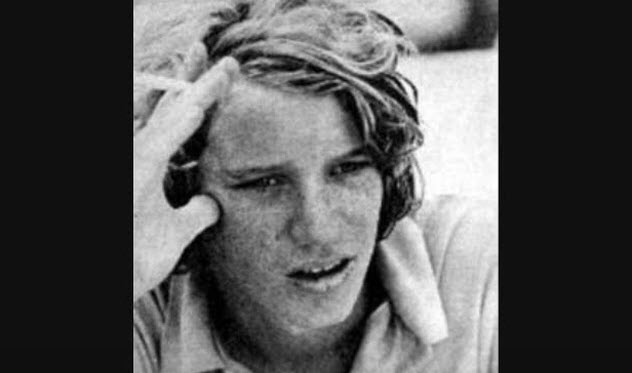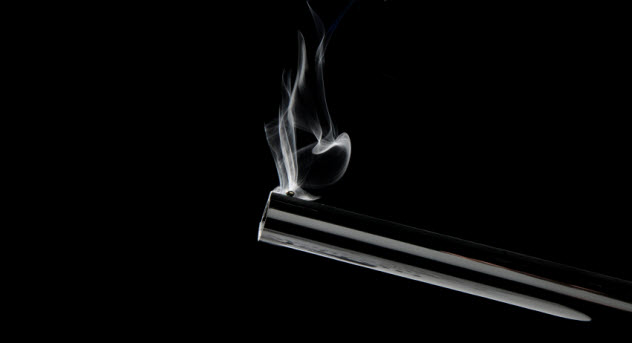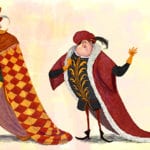10 Fred Trump III
Since Donald Trump announced his candidacy for US president, he has generated controversy on both sides of the political aisle. But before he became a mogul of industry, he looked up to his older brother, Fred Trump III, as a role model. Donald has revealed how Fred’s early death profoundly affected his life. As the eldest son of Trump family patriarch Fred Trump Jr., Fred Trump III was in line to be his father’s successor in business, and it seemed like his life would be a great success. According to Donald, his older brother was “the life of the party. He was a fantastic guy, but he got stuck on alcohol.” Fred developed severe alcoholism as he turned away from business and spent more time partying. This decline had a profound effect on Donald, who abstains from alcohol. As Fred’s health worsened, he tried to get help. But nothing worked. He knew he had a problem and regretted ever taking up drinking. Alcohol put Fred Trump III into an early grave. He died in 1981 at age 42.
9 Walker Inman
When tobacco heiress Doris Duke died in 1993, she shocked many by willing her $1 billion dollar estate to charity. But no one was more shocked than her nephew and only heir, Walker Inman. All Duke left to Inman was a $7 million trust. Along with several other trusts Inman received in the early 1970s, he was able to live a comfortable, even lavish life. Inman didn’t have to work, so he took to drugs to get his kicks. Walker Inman’s addictions led him to some dark places. After divorcing his wife, Daisha, with whom he had twins, he fought in court to keep his children. The custody trials dragged on for most of the twins’ lives. Despite his ferocious attempts to get custody of his children, Inman was a horrifically abusive father. He often locked his children in a basement without a bathroom and forced them to take baths in scalding water. The main reason they weren’t removed was that the courts believed their mother was mentally unstable: She had once married a registered sex offender. Inman racked up five wives while living on a monthly income of $90,000. Despite this lavish income, Inman was never content and died in 2010 of a methadone overdose. He was just shy of his 58th birthday.
8 Conrad ‘Nicky’ Hilton Jr.
By all accounts, Conrad “Nicky” Hilton Jr. had the perfect life. As the son of Hilton Hotel founder Conrad Hilton, he had no shortage of money or glamour in his life. He could get virtually any woman he wanted, and he could buy anything he desired. In 1950, Hilton married one of the most famous, beautiful women in Hollywood: Elizabeth Taylor. At age 18, Taylor was marrying for the first time. While it seemed like a fairy tale wedding, the relationship became a nightmare within months. Hilton liked to gamble, drink, and womanize. Handsome and enormously wealthy, he was irresistible to women. During their honeymoon in Europe, Hilton drank heavily and preferred gambling over paying attention to his new bride. He emotionally abused her, which left the young Elizabeth scarred mentally. By the time she returned home from their honeymoon, she was sick and smoked heavily because of her nerves. There was no chance of a reconciliation. About her first marriage, Taylor said she was “very naive.” On January 29, 1951, she divorced Hilton just 205 days after their wedding. Hilton didn’t stop his lifestyle of drinking heavily. He married again in 1958, but that marriage failed, too. He died 11 years later of a heart attack at age 42.
7 John Hervey
John Hervey, 7th Marquess of Bristol, came from a long line of eccentric British aristocrats. The 3rd Marquess of Bristol claimed to have slept with 12 Portuguese nuns. Victor Hervey, 6th Marquess of Bristol and John’s father, was once arrested for taking part in a jewel heist. However, John would top them all with his decadent, hedonistic ways. He lived a short life, but he managed to pack in some of the most over-the-top acts of pure debauchery. When John was born in 1954, he seemed to be on track to have a great life. His family was wealthy, and despite their reputation for unusual behavior, they were respectable enough. Soon, a series of tragedies showed just how messed up his world was. One of his godparents committed suicide while another family friend shot his own wife. When John was four, his mother left, claiming that she couldn’t stand his father’s habit of keeping the radiators on at night. John was lonely, and his father was distant. Rather than spend time with his son, Victor gave him toys and other gifts. When John was 21, he inherited the family estate, Ickworth, which was worth £4 million. Good investments allowed John to increase this fortune so that he had enough money to afford anything he wanted. He went on to buy helicopters, motorcycles, cars, and yachts. But John most enjoyed drugs and alcohol. He began drinking as a teenager and soon moved on to using cocaine and other hard drugs. He held parties at the luxurious Claridge’s where he kept a suite. According to partygoers, cocaine and heroin was put on the mantelpiece—cocaine on the left, heroin on the right. On one occasion, John snorted cocaine while piloting a helicopter and nearly crashed it. He also had a huge appetite for sex. He was a bisexual who preferred men but had a short-lived marriage. It ended with his wife dangling from his Bentley which he nearly drunkenly drove off a cliff. One of his paramours was a young Rupert Everett. John had a seat in the House of Lords because he was nobility, although he became the only member to be banned from entering Australia. A drug-related crime was the reason. In 1999, John died penniless at age 44 of multiple organ failure. After his death, it was estimated that John Hervey spent £7 million on drugs.
6 Gottfried von Bismarck
Gottfried von Bismarck was one of the descendants of the great German leader Otto von Bismarck. He had both pedigree and enormous amounts of money, but he chose to live the high life instead of a life of accomplishment. In the less than 50 years that Gottfried was alive, he became one of the most reckless hell-raisers who ever lived, hosting wild parties which occasionally ended in tragedy. When Gottfried was younger, he displayed great intelligence. But after attending boarding schools, he began to hate authority. In the 1980s, Gottfried went to Oxford to further his education but became a hard partyer who could drink anyone under the table. In 1986, this came to an end when Olivia Channon, the daughter of a cabinet member in the Thatcher administration, died in his apartment from an overdose of alcohol and heroin. After an investigation, the police found illicitly obtained amphetamines and cocaine. Gottfried was rushed off to a rehab clinic. After a brief career in business, Gottfried returned to the London party scene where he held drug-fueled, homosexual orgies. In 2006, a second tragedy occurred when one of his guests fell from his apartment balcony and was discovered to have massive amounts of cocaine in his system. A year later, Gottfried was found dead in his empty apartment, which was being sold. He had the highest amount of cocaine in his system that the coroner had ever seen, along with massive amounts of morphine. Gottfried’s arm was completely black, the result of injecting cocaine every hour on the hour. His health report stated that he had multiple diseases that had gone unnoticed: hepatitis B, hepatitis C, significant liver damage, and HIV.
5 David Kennedy
The Kennedy family has become infamous for the number of tragedies they have endured over the years. Plane crashes, assassinations, and unusual health problems have all put members of their family into early graves. But one of the saddest stories belongs to David Kennedy, one of the children of the assassinated Robert Kennedy. David was always known as a nice guy to his friends, but depression led to a serious drug addiction. David was young when his father was gunned down in 1968, so it undoubtedly affected his life. One of his friends asked him why he was unhappy, to which Kennedy responded: “I can’t, I cannot forget my father on this. [ . . . ] I never find peace inside, I’ve been full of pain.” David was arrested twice for drunk driving and was once mugged outside a Harlem hotel that was a well-known heroin “shooting gallery.” Although the rest of his family weren’t angels, many of them looked down on David, and he knew it. In an interview with People magazine, one family friend said about him: “He really did believe that everyone in the family regarded him as merely a skeleton to be kept closeted.” After treatment at a Minnesota clinic in 1984, David went to Palm Beach where his 93-year-old grandmother, Rose Kennedy, was in poor health. Upon seeing her in such bad shape, he became despondent. Along with an embarrassing interview with Playboy, that may have pushed him over the edge. After an inquiry, it became clear that David was using cocaine during his time in Palm Beach. Several female companions who were with him at the time said he used the drugs regularly. He drank heavily from morning to evening and took Demerol from his grandmother, who was prescribed the drug for pain. On April 25, 1984, David, 28, was found dead in his room at the Brazilian Court Hotel. He had taken a lethal dose of cocaine, Demerol, and Mellaril, an antidepressant prescribed for him by a doctor.
4 Tad Walgreen
Tad Walgreen was one of the heirs of the Walgreen fortune, built from America’s largest chain of drugstores. According to the family, Tad grew up in modest circumstances with his mother, who had divorced Charles “Cork” Walgreen III and was living away from the affluent family. Tad first became involved with the family during his teen years when he began living with his father. The two didn’t get along, so Tad traveled to Colorado and later Arizona where he was chronically unemployed. He developed a drinking problem, one that would plague him for the rest of his short life. After his alcoholism got out of control, Tad was sent to a Chicago hospital for treatment where he met his future wife, Loren, who was being treated for depression. They married in 1988 and had two children, but they both sank into a life of squalor and addiction. In 1993, after Loren attempted suicide, her mother took custody of the children, and the Walgreen family began supporting the children financially. Tad served time for drunk driving and was soon facing even more legal problems after illegally obtaining prescription painkillers from, ironically, a Walgreen’s pharmacy. During a 1996 custody trial for the children, Tad’s grandfather said that he sent Tad and Loren money to pay their rent, but they used it to buy drugs instead. He then began to give the money directly to their landlord. He also gave them money to support their children, but that was also used to buy drugs. Whenever he actually visited Tad’s apartment, he was appalled by the horrific conditions in which Tad lived. Covered in filth, the apartment was in one of the seediest neighborhoods in Chicago. Tad agreed to give his family custody of the children and died soon afterward from a cocaine overdose in 1996. When found, his body was in an advanced state of decomposition. He was 36. His wife, Loren, died in 1999 from a drug overdose at age 31.
3 Jimmy Woodward
The Woodwards were one of New York’s oldest, most well-connected families, but they also had secret scandals that caused issues over the years. In 1955, things finally came to a head when Ann Woodward shot her husband, William Woodward, on their estate. William was heir to the family’s banking empire. According to Ann, she didn’t recognize him in the dark and believed that he was a neighborhood prowler. The nightmarish ordeal seemed to come to an end when a grand jury declared the shooting an accident. Eventually, all was forgotten. Then in 1975, Truman Capote published chapters from his novel Answered Prayers. In one passage, Capote told the story of Ann Woodward shooting her husband. Fearing the backlash against her, Ann killed herself with a cyanide capsule. All of this greatly affected her two sons, Jimmy and William III. Jimmy always believed that his mother was guilty of murder, which caused him severe psychiatric problems over the years. He was only nine when the shooting occurred, and he never recovered. After graduating from school, Jimmy volunteered to fight in Vietnam, which compounded his problems. When he returned from Vietnam, Jimmy sent letters to his mother calling her a killer. Suffering a psychotic break, he stripped naked and jumped from a friend’s fourth-story apartment. He survived and went to a psychiatric hospital. After being released, Jimmy began to use heroin and cocaine heavily. His drug use made him paranoid, and he began hallucinating that people were spying on him through his television set. In 1976, a year after the damning chapter in Answered Prayers was published, Jimmy again jumped out of a window, this time at a Central Park hotel. He didn’t survive. Coincidentally, William III, who seemed to have recovered from these tragedies, also killed himself by jumping out of the window of his 14th-floor Manhattan apartment in 1999.
2 Scott Sterling
The Sterlings have endured quite a bit of controversy in recent years. Donald Sterling, the former owner of the Los Angeles Clippers, was forced to sell his team after making racist comments. But before that happened, there was another tragedy in the family. Scott Sterling, one of Donald’s children, tragically died at a young age. Despite coming from an enormously wealthy family, Scott had a hard life from the beginning. According to eyewitnesses, his father was physically and emotionally abusive. Philip Scheid, Scott’s childhood friend, said that Scott regularly came to his house covered in scars and bruises from his father’s beatings. He also said that he once observed Donald Sterling dragging his son out of a car by his hair. Scott was always emotionally fragile. When he was 19, he shot Scheid in the back of the legs. Scheid survived the gunshot, and Scott was never charged with a crime. Scott tried to forget his problems by abusing drugs, which became a lifelong struggle. He also became dependent on his father’s fortune to survive. In 2013, after years of drug use, Scott was found dead in one of his father’s properties where he was living. It was determined that he had died from a pulmonary embolism along with “narcotic medication intake” and diabetes. According to the police, Scott died as a result of trying to inject oxycodone that was formulated for oral use only. The oral medication had fillers which blocked his bloodstream. Scott Sterling was only 32 years old.
1 Andrew Getty
Andrew Getty is the most recent Getty to have had his life cut short. The son of Gordon Getty, who has an estimated net worth of $2.1 billion, Andrew shared the same hopes and dreams of many people: He wanted to make films. Andrew should have had a leg up in the industry because of the connections of his family and his extraordinary wealth. But he never succeeded, which led to a tragic life. Andrew first studied film at USC and then graduated from New York University in 1990. He moved to Los Angeles so that he could pursue his dreams. According to his friends, Andrew was an imaginative man who told great stories, a talent he translated to film scripts. In his mansion, he reportedly kept numerous horror movies along with pornography. Over the years, Andrew wrote hundreds of scripts, none of which were purchased by a studio. Finally, he decided to film a movie himself. He spent six million dollars on an independent horror movie which he never released. As it became more apparent that his dreams wouldn’t come true, he turned to a life of beautiful women and drugs. His health suffered as a result. Andrew’s most steady girlfriend was Lanessa Dejonge. Their on-and-off relationship was characterized by frequent police reports of domestic violence. Shortly before his death, Andrew filed a restraining order against Dejonge. He claimed that her tempestuous nature affected his health: He had high blood pressure and needed to have as little drama as possible. He also suffered from gastric ulcers, but his poor health didn’t stop his drug use. According to Dejonge, Andrew used an “eight ball” of methamphetamine a day, which is 3.5 grams. Eventually, he was found dead in his home. Along with methamphetamines and drug paraphernalia, Andrew had numerous guns and prescription medications, including antibiotics, blood pressure medication, testosterone injections, and Norco, a combination of acetaminophen and hydrocodone. His official cause of death was methamphetamine intoxication and gastrointestinal hemorrhage. He was 47 years old. Gordon Gora is a struggling author who is desperately trying to make it. He is working on several projects, but until he finishes one, he will write for Listverse for his bread and butter. You can write him at [email protected].

